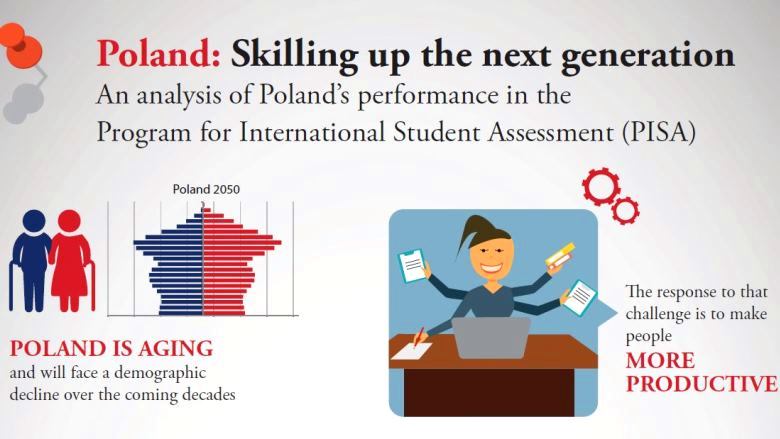In a series of four reports World Bank researchers analyzed data from the Program for International Student Assessment (PISA) for Bulgaria, Hungary, Poland and Slovak Republic to examine the performance of 15 year-olds in reading, mathematics and science and its variation between students from different socio-economic groups.
The analysis suggests that there is reason for concern.
First, significant numbers of young people in countries of Central Europe, and across the European Union (EU) as a whole, today risk graduating from secondary education without minimum literacy and numeracy skills. For example, more than a third of Bulgarian, Cypriot, Romanian and Greek 15 year-olds and more than a quarter of their peers in Croatia, Hungary, Slovak Republic, Sweden, Lithuania, Portugal and Italy perform below level 2 in the PISA mathematics assessment. The results are similar for reading literacy.
Second, the World Bank research demonstrates that poor performance in PISA is often strongly concentrated among students from poor socio-economic background and in certain types of schools. In Hungary mean PISA scores are close to the OECD averages, but the average score gap between students from the top and bottom socio-economic quintiles is the equivalent of more than three years of schooling (as opposed to the OECD average of two years of schooling).
Moreover, the analysis shows that 15 year-olds from socio-economically disadvantaged background Bulgaria, Hungary and Slovakia are disproportionately attending vocational schools where quality is significantly below general secondary schools. These three countries are selecting students between vocational and general education tracks at an earlier age than many of their neighbors.


